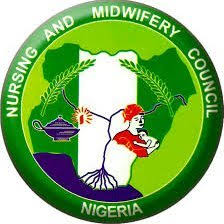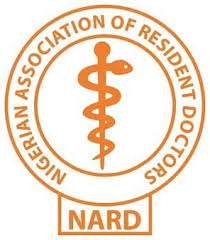Surgeons in the country have bemoaned the dearth of surgical equipment in health facilities located in suburban areas of the country.
The surgeons voiced this concern on Tuesday in commemoration of the 2024 Surgery Day and the third Prof. Ewan Alufohai Lecture Series organised by the Department of Surgery, Irrua Specialist Teaching Hospital, and Ambrose Alli University, Ekpoma, Edo State.
The surgeons, who spoke at a hybrid meeting on the theme ‘Lassa fever and the Nigerian surgeon: New insights and lessons,’ urged the government at all levels, and non-governmental organisations to provide equipment for health facilities in suburban areas for adequate treatment of patients.
Speaking, a consultant paediatric surgeon and the Head of the Department of Surgery at ISTH and AAU, Dr Ernest Udefiagbon, noted that some surgeons had left the facility due to a lack of surgical equipment to work with.
Udefiagbon said, “We need equipment to support the specialist centres in the semi-urban areas in surgical procedures because we have to do most of the things improvising. The government should look at tertiary centres in rural settings and ensure that they are well-equipped. We need equipment that will facilitate different surgeries because we should be able to do surgeries that are done in big tertiary hospitals in rural centres.
“For instance, we do not have facilities for open-heart procedures in our cardio-thoracic centres, even though we have a cardio-thoracic surgeon. The cardio-thoracic surgeon waited for things to be done, and when nothing was done, he had to relocate to the United Kingdom.
“We need equipment to make the cardio-thoracic unit work. Also, in the neurosurgery unit, the facilities are limited, and what the neurosurgeons can do is limited. Again, two neurosurgeons had left in the past because they felt they were being wasted, and they were not actualising why they went to specialise in that field.”
The paediatric surgeon tasked the government to equip hospitals in suburban settings, especially at the ISTH, with modern-day surgical equipment to perform optimally.
“The government should look at a place like ISTH and provide equipment for surgeons to work. We have people who can use the equipment, but the equipment is not available, so they have been improvising with what they work with, and it is like that with every surgery unit,” he stated.
Also speaking, a consultant plastic surgeon at the hospital, Dr Emmanuel Esezobor, highlighted that ISTH should be fully equipped as it treats viral haemorrhagic fever cases and complicated surgical cases from within and outside the country.
Esezobor said, “ISTH is a designated centre of excellence when it comes to VHF like Lassa fever, so it is one of the solution providers when there is an outbreak of Lassa Fever, and other VHF like Ebola. Some set of patients who have VHF also develop surgical conditions, where they will need surgeries. So, in that situation, the surgical areas need to be developed. There is a need for the provision of equipment and the training of manpower for minimally invasive surgeries like laparoscopy.
“Despite being in the rural area, ISTH serves two senatorial zones in Edo state, a part of Kogi state, a part of Delta state, and a part of Ondo state. Some of these patients come with complex conditions, and we are a little bit experienced in handling these situations.
“As a plastic surgeon, I dwell on very complex reconstructions, so if you come to my unit, you will see children who come from all over Africa for very complex reconstructions, and the surgeries have to be done to a level that should be acceptable to the society.
“Some of us have to invest in the equipment with our money because we have personal goals we want to achieve.”
The Plastic Surgeon called on the government to invest in hospitals in rural areas to ease the burden on hospitals in the urban areas.
On his part, a Consultant General Surgeon at the hospital, Dr. Esteem Tagar appealed to the government and NGOs to support the centre for better healthcare delivery.
“From general surgery to plastic and reconstructive surgery, urology, paediatric surgery, cardiothoracic surgery, neurosurgery, orthopaedic surgery, ophthalmology, otorhinolaryngology, and maxillofacial surgery, we have thrived to provide surgical solutions to our host and more. Some of our surgical solutions are also beginning to go global.
“We will want the support of the local government, the state government, the federal government, and the NGOs to partner with us to make our services better. We hope to be a hub of creativity in surgery, if we get support such as the provision of world-class surgical theatres, and wards, including amenity wards for visiting patients from far states, and other countries, as we are beginning to witness some patients coming in for plastic surgeries, general surgery and other surgical procedures from some West African countries, the United States and the UK.
“What we currently require is the support in terms of training, equipment, and infrastructures as we already have the requisite competence,” Dr Tagar added.




